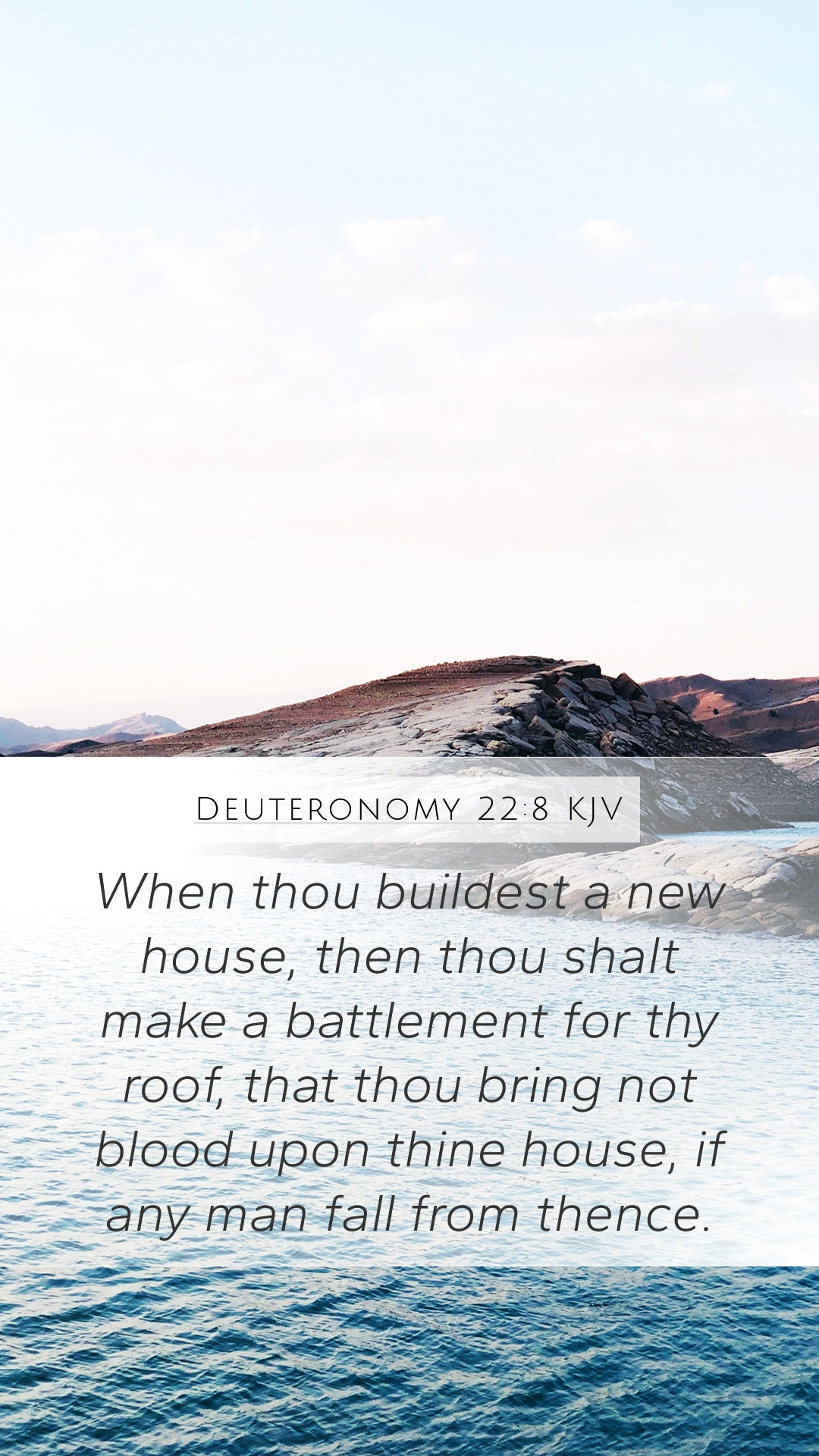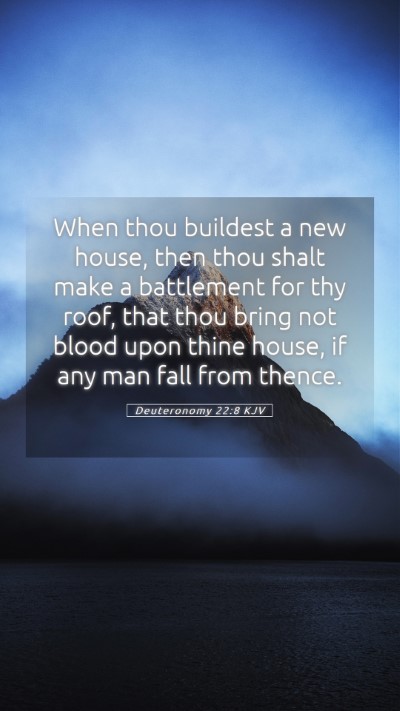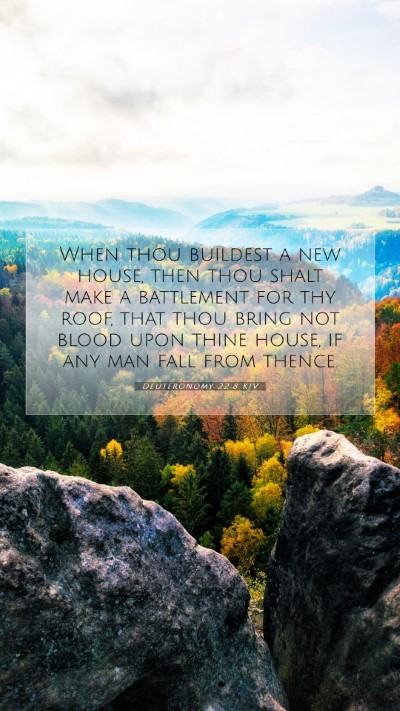Understanding Deuteronomy 22:8
Bible Verse: Deuteronomy 22:8 - "When thou buildest a new house, then thou shalt make a battlement for thy roof, that thou bring not blood upon thine house, if any man fall from thence."
This verse is part of God’s instruction to the Israelites concerning various laws aimed at promoting safety, responsibility, and communal harmony within their society. The verse specifically addresses the construction of houses and the necessity of providing safety measures, reflecting broader biblical themes of care, protection, and social responsibility.
Insights from Public Domain Commentaries
Matthew Henry's Commentary
Matthew Henry emphasizes the importance of the practical side of God's laws, stating that they serve to promote the well-being of individuals and society. He notes that building a battlement is symbolic of a thoughtful and considerate approach to life, ensuring that one’s actions do not lead to harm. Henry interprets the command as a reflection of God's concern for the welfare of His people, indicating that spiritual principles are often mirrored in physical actions.
Albert Barnes' Notes on the Bible
Albert Barnes provides an insightful interpretation of the phrase "battlement for thy roof," explaining it as a protective structure to prevent accidents. He points out that this law depicts the moral responsibility individuals have toward others, particularly in residential areas. Barnes connects this commandment with the broader idea of safeguarding life and ensuring that dangers are mitigated in community living, resonating with the theme of love and care for one's neighbor.
Adam Clarke's Commentary
Adam Clarke elaborates on the cultural and historical context of Deuteronomy 22:8, indicating the necessity for safety measures in ancient architecture, especially in a society where flat roofs were common. Clarke stresses that this law is not merely about physical structures; it conveys the moral obligation to prevent harm and shows how God cares for His creation. He discusses how this principle reflects a greater idea of responsibility we bear in our actions and decisions—an important understanding in our application of biblical principles in daily life.
Common Themes in the Commentary
- Responsibility: The command illustrates that individuals must take responsibility for their living environments.
- Protection: Emphasizes the importance of safeguarding others from potential harm.
- Community Living: Highlights the interconnectedness of individuals within a society.
- Divine Care: Reflects God’s concern for the safety and welfare of His people.
Bible Verse Interpretations
Understanding Deuteronomy 22:8 can greatly enhance one’s approach to biblical study, as it encapsulates key principles that transcend time and cultural differences. Here are several key interpretations:
- Safety First: The verse illustrates the importance of creating safe spaces for all, akin to how we might interpret the importance of workplace or home safety today.
- Social Responsibility: By constructing a battlement, you actively contribute to the welfare of others, showcasing the biblical principle of loving your neighbor.
- Preparation and Planning: Building the safety feature beforehand symbolizes the wisdom in foresight and planning, applicable in various life aspects.
Application to Daily Life
The practical application of Deuteronomy 22:8 is a call for Christians to think about how their actions, both large and small, can affect the well-being of others. This inspires several key life lessons:
- Implementing Safety Measures: In our homes and communities, we ought to ensure that safe measures are taken for the benefit of others.
- Being Considerate: The verse challenges us to think ahead about how our choices may impact those around us.
- Cultivating a Culture of Care: Promoting an environment where everyone’s safety is a priority reflects the kingdom of God.
Related Bible Verses
- Exodus 21:28-29: Relates to the consequences of negligence and the importance of safeguarding others.
- Leviticus 19:18: Emphasizes the command to love one's neighbor as oneself.
- Proverbs 27:12: Highlights wisdom in foreseeing danger and taking precautions.
Conclusion
In exploring Deuteronomy 22:8 through various biblical commentaries and interpretations, we uncover profound insights about responsibility, community, and foresight. Engaging with the meaning of Bible verses such as this enriches our spiritual lives, equips us for thoughtful living, and informs our deepening understanding of Scripture. These interpretations and applications should encourage ongoing exploration within Bible study groups and personal study sessions, cultivating a mature understanding of biblical principles and their relevance today.


